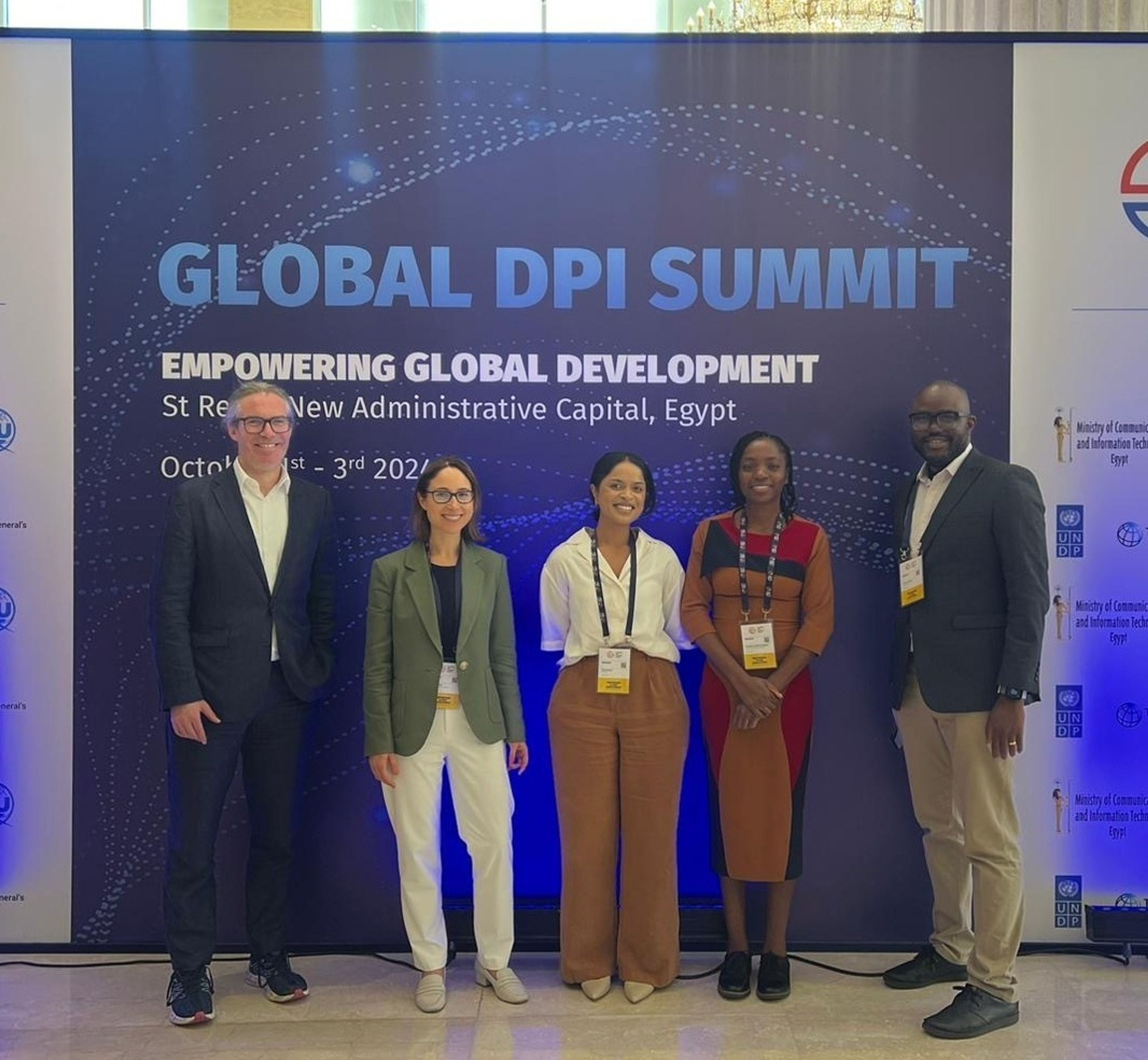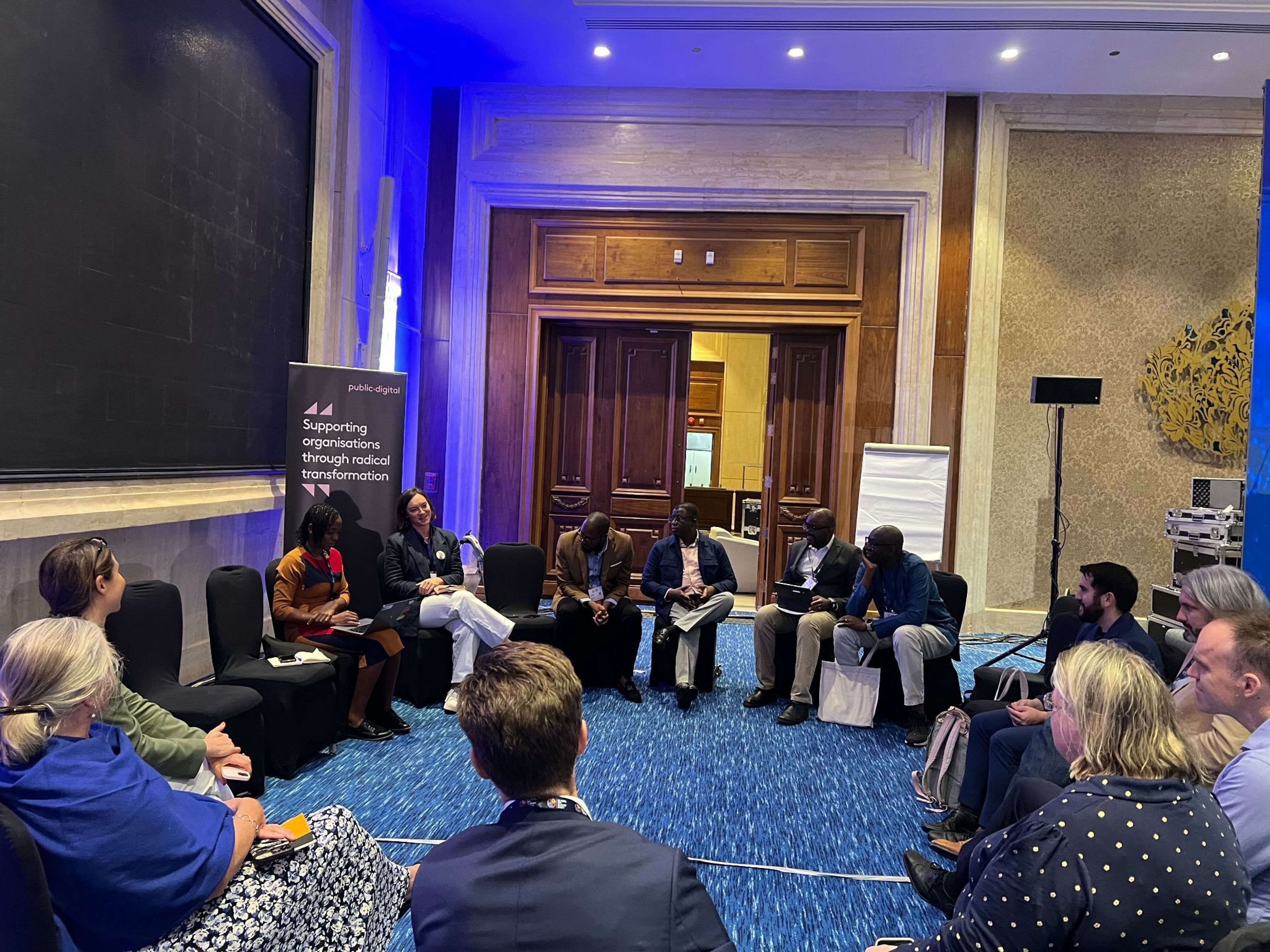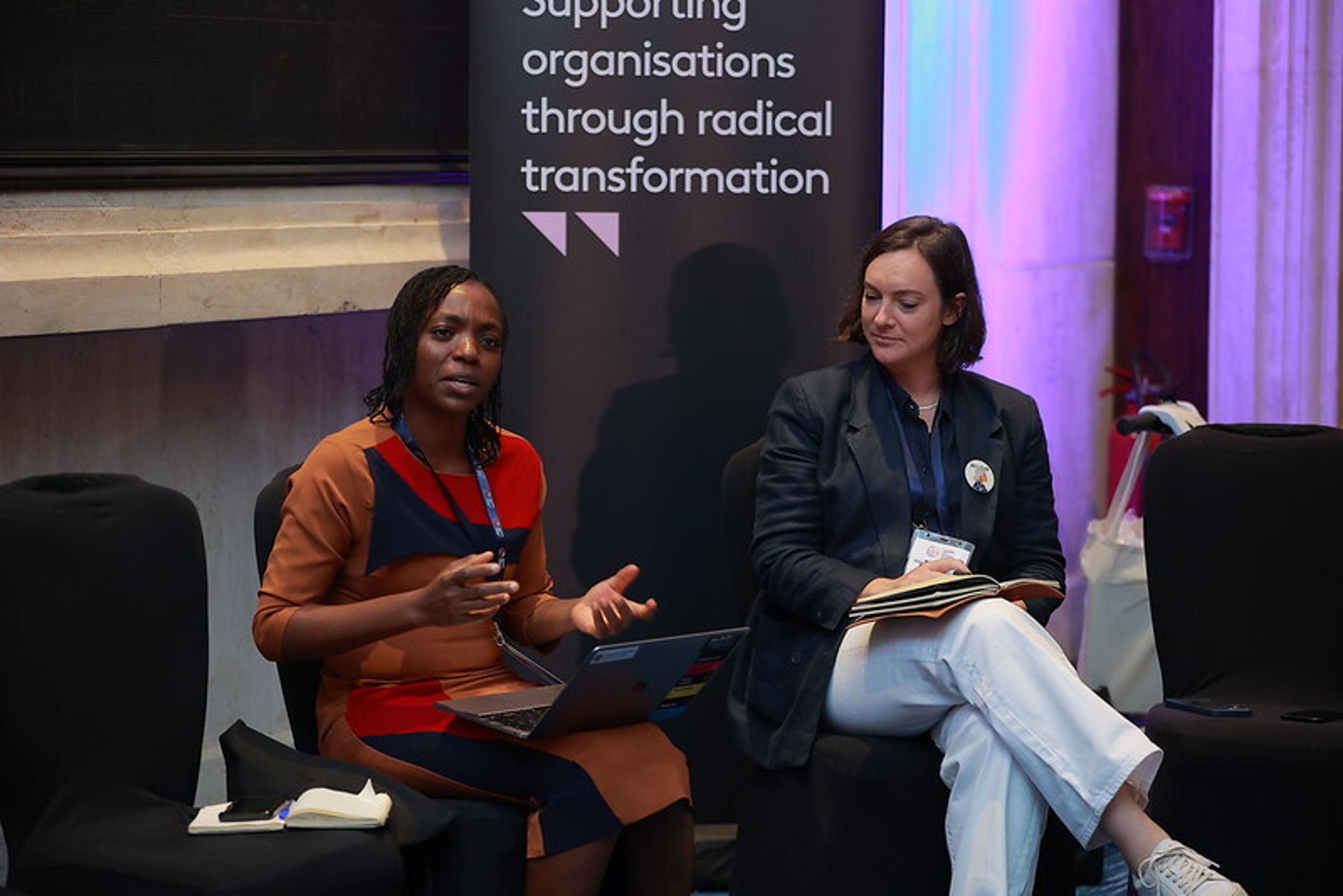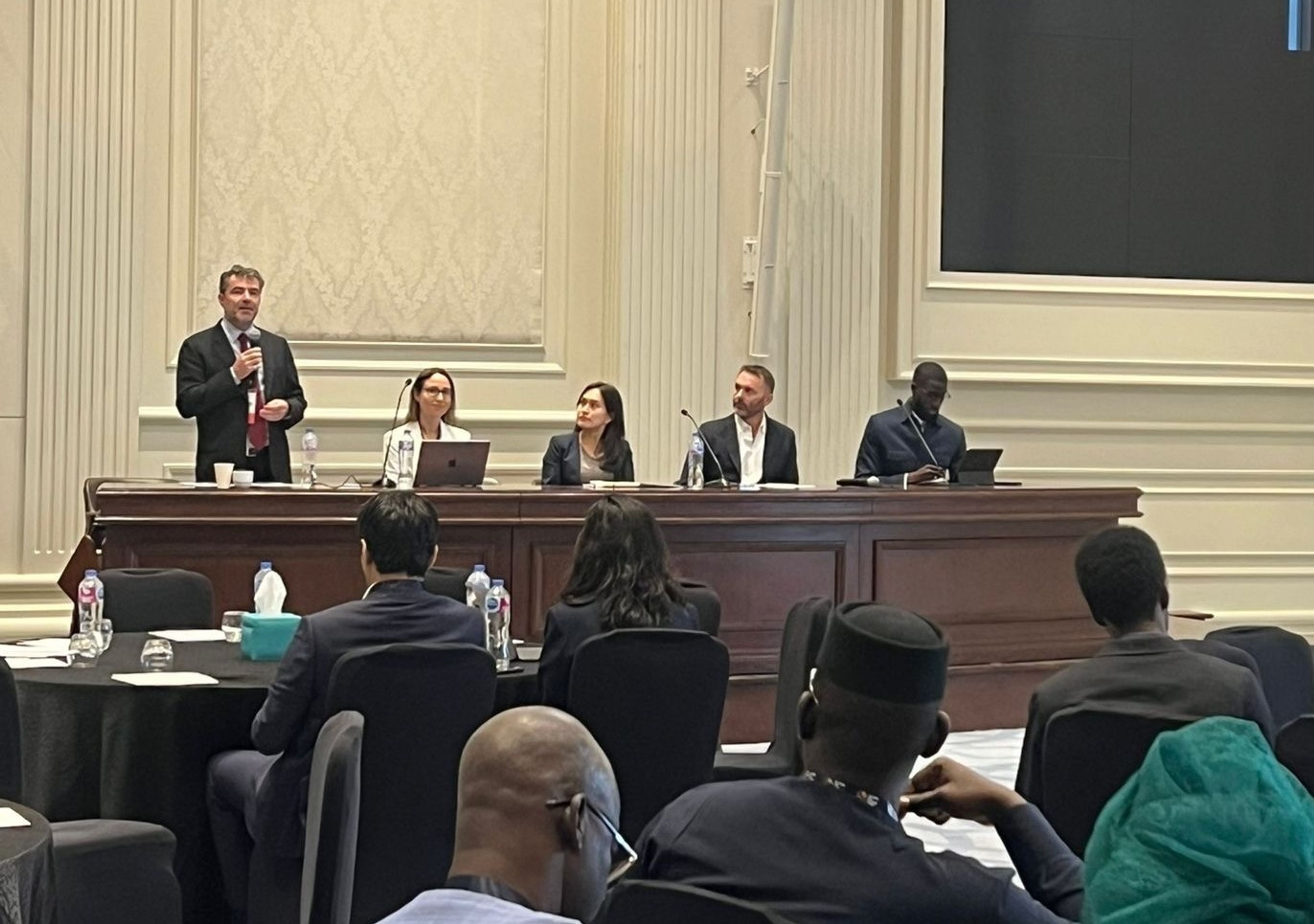
Digital public goods and Africa's digital economy
This post is by PD consultant Blessing Ajimoti and our Head of Africa Abisola Fatokun.
Earlier this month Public Digital attended the Global DPI summit in Cairo. Read our main takeaways.
At the summit, we convened a discussion on how Africa’s digital economy can enable the continent to lead its digital transformation. In this post, we share some of the insights from the session.

The context: Africa’s digital economy
Africa has a thriving digital economy with an ecosystem of tech startups, independent software vendors, system integrators, and tech talent, amongst others who are developing and scaling digital infrastructure. This capability in the private sector has given rise to innovative products promoting financial inclusion, aiding social benefits payments, improving health outcomes, facilitating access to education, and enabling digital identity.
Many of these products take the form of Digital Public Goods (DPG), which, if implemented in the public sector, have the potential to be leveraged as part of progressing Digital Public Infrastructure (DPI) across the continent.
Early successes in Africa’s DPI
The session highlighted some open source technologies of African origin, many of which have been leveraged by private and public organisations including the likes of Jumia and Konga. They include Ushahidi from Kenya (data for good governance, humanitarian and disaster relief and human rights protection) and Open Data Kit (forms for data collection).
African governments are also adopting and modifying DPGs developed elsewhere. While Ethiopia has enhanced MOSIP for their digital identity system, many African countries have adopted iHRIS for their health workforce programmes and enhanced it by adding offline features.
Similarly, DPG product teams highlighted that system integrators and independent software vendors across Africa do not just adopt DPGs but also sometimes contribute back to their code base. However, it’s notable that these instances are mainly limited to those that have contributions to the open source code base stipulated in their procurement contracts.
The challenge of DPI implementation in the public sector
Despite the wealth of digital capability across the continent, the rewards often fail to translate to the public sector, even in countries which have embarked on digital transformation.
This is reflected in the difficulty faced by African governments in developing, adopting, or implementing DPGs for DPI.
The reasons for this are myriad, including Africa’s low connectivity, weak interoperability between systems, lack of funding, issues with data governance and privacy protection, and infrastructure issues like unreliable power supply.
However, more significant is the capability divide between the private sector digital economy and African governments.
Even when governments commit to leading implementations of DPGs, they are often obstructed by a scarcity of talent. The limited digital skills in government teams, partly influenced by the education system’s challenges in providing the relevant digital training, is compounded by the lack of incentive for otherwise self-motivated actors to learn how to implement DPGs.
The public sector’s low digital capability represents a major obstacle to Africa’s digital transformation. As Nandan Nilekani (Infosys Technologies Limited) noted at the Summit, a country “cannot outsource the thinking” if it’s to effectively and sustainably digitally transform.

Delivering change
Building digital capability is no small challenge. But there are levers which can be used by government and other actors to harness Africa’s digital capability in the private sector for the public sector.
The role of procurement
The first lever is the design of procurements for DPGs.
If DPG product teams, regardless of their origin, are contractually required to build the capacity of local actors and government teams, there is ripe potential for digital capability development in the public sector.
Edo State, a subnational in Nigeria and a former Public Digital client, currently has among the highest number globally of public sector staff certified to manage DHIS2. This is thanks to a project with a local vendor to support Edo in developing its data for governance portal, where the contract required the vendor to transfer the DPG’s implementation capability to the government. The result is that Edo’s government is empowered to continue to manage and scale DHIS2 independently.
The role of procurement contracts in building capability is also clear from the approach highlighted by a DPG product team during the session. This team adopts a ‘talent accelerator model’, building the capability of the implementing in-country system integrator (SI) when the procurement process is close to completion. This incentivises the SI to undergo the capacity development for the implementation of the DPG product.
Procurement has the potential to transform capability building for the public sector, but integral to that is developing procurement processes which favour companies in the countries’ local digital economies. In Ethiopia, smaller companies that would otherwise be shut out of typical government procurements are able to undergo a pre-qualification process, so that bidding for government contracts becomes less onerous. This is a good example to follow, and we believe development financial institutions have a role to play in encouraging the emergence of DPGs by supporting more countries to open up procurement for smaller companies.
Internal capacity building
Beyond leveraging procurement, African governments must focus on institutionalising capacity building and digital skills development.
As we’ve seen in our recent work in Edo State, that means building sustainable internal capacity within the national and subnationals, setting up digital units in government, and building capacity through a multistakeholder approach.
It also means distributing capability. By embedding digitally skilled staff across ministries, departments and agencies of government, and ensuring that these stakeholders are working directly with digital teams, capability can be expanded across the public sector. Sustaining those digital capabilities requires digital champions: career civil servants with sufficient seniority and influence to promote and continue the work, rather than championing transformation exclusively with political appointees.
Levers available to DPG teams
The session highlighted how DPG teams also have the potential to help advance the continent’s digital capability.
Participants identified the role that higher education systems in African countries can play in equipping their Computer Science students with the knowledge and tools to build software systems.
They also pointed to the challenge of identifying competent local Systems Integrators (SIs) that are able to implement DPGs on the ground. While these SIs no doubt exist, this discoverability challenge reveals another lever for harnessing digital capability: The opportunity for emerging DPGs to collaborate and share information on where they can find capable Systems Integrators.
The challenge ahead
Many of the panels at the DPI summit surfaced the inadequacy of ‘copy-paste’ DPI solutions from other regions, and the need for “DPI brewed in an African pot”.
Africa faces a range of challenges in progressing its digital transformation. In addition to improving connectivity, especially in rural areas, it must build interoperable systems, develop appropriate policy and regulatory frameworks, and ensure data governance, privacy and security. It will benefit tremendously from leveraging open source solutions and building the foundations of digital ID, payment, and data exchange systems.
But for the continent to take full ownership of its digital transformation, Africa must develop and adapt DPIs tailored to its contexts, priorities, and challenges. Its governments must be equipped with sustained digital teams able to both adopt and evolve DPIs.
Africa’s thriving digital economy - and the existing digital capabilities to be found there - offer the potential to make that a reality.
That journey starts in government: It begins with investing heavily in digital skills and capacity building at all levels, and educating stakeholders on the value of data and digital transformation. It also requires cooperation between the digitally advanced African nations and those working to strengthen their digital ecosystems.
Written by

Blessing Ajimoti
Principal Consultant

Adriana Pepe
Consultant
